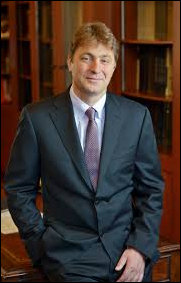
Provost Thanassis Rikakis
A growing number of Virginia Tech faculty members are unhappy with Provost Thanassis Rikakis, the university’s chief academic officer. A recent faculty senate resolution declared that promotion and tenure policies addressed in a Rikakis memo violated tenets of the Faculty Handbook. Some professors have openly discussed holding a no-confidence vote.
The Roanoke Times has obtained copies of the Rikakis memo and a faculty critique of the provost that illuminate the inner workings of university administration and politics. Writes the newspaper:
[One] memo addresses problems with faculty perceptions, calling for bottom up implementation of changes and improving communication between administrators and faculty members. The memo lays out target dates for change and action plans for improving promotion and tenure, new initiatives and general communication at the university.
Another memo from the provost intends to “clarify the promotion and tenure process and to specify outcomes that are possible throughout that process.” … One part of the memo says faculty members who receive a “negative decision” during the review process can be reappointed to a different position elsewhere at Tech.
In a near-unanimous vote, the 40-person Faculty Senate rejected the Rikakis memo’s description of the tenure system.
By way of background Virginia Tech has articulated plans to create world-class “destination areas,” interdisciplinary teams that will make Tech “an international destination for talent, partnerships, and transformative knowledge.” The university has identified five so far: adaptive brain and behavior; data and decisions; global systems science; integrated security; and intelligent infrastructure for human-centered communities.
Writes the Roanoke Times:
Tech administrators have said that faculty buy-in is a critical piece to making initiatives such as destination areas a success.
“All Thanassis and I can do … is to create a scaffold or a framework to simplify the conversation,” Tech President Timothy Sands said in an interview for a Roanoke Times profile of Rikakis that was published in January. “In the end, it has to be the students, faculty, staff and partners to make it work.”
Bacon’s bottom line: There are at least two ways to frame this issue. One is that Virginia Tech’s faculty is righteously resisting encroachments upon its autonomy by an administration that seeks to accumulate power and authority. Another is that Virginia Tech’s myopic faculty is selfishly defending its institutional perks against an administration trying build Virginia Tech into a world-class educational institution. I imagine that a good case could be made for both views.


